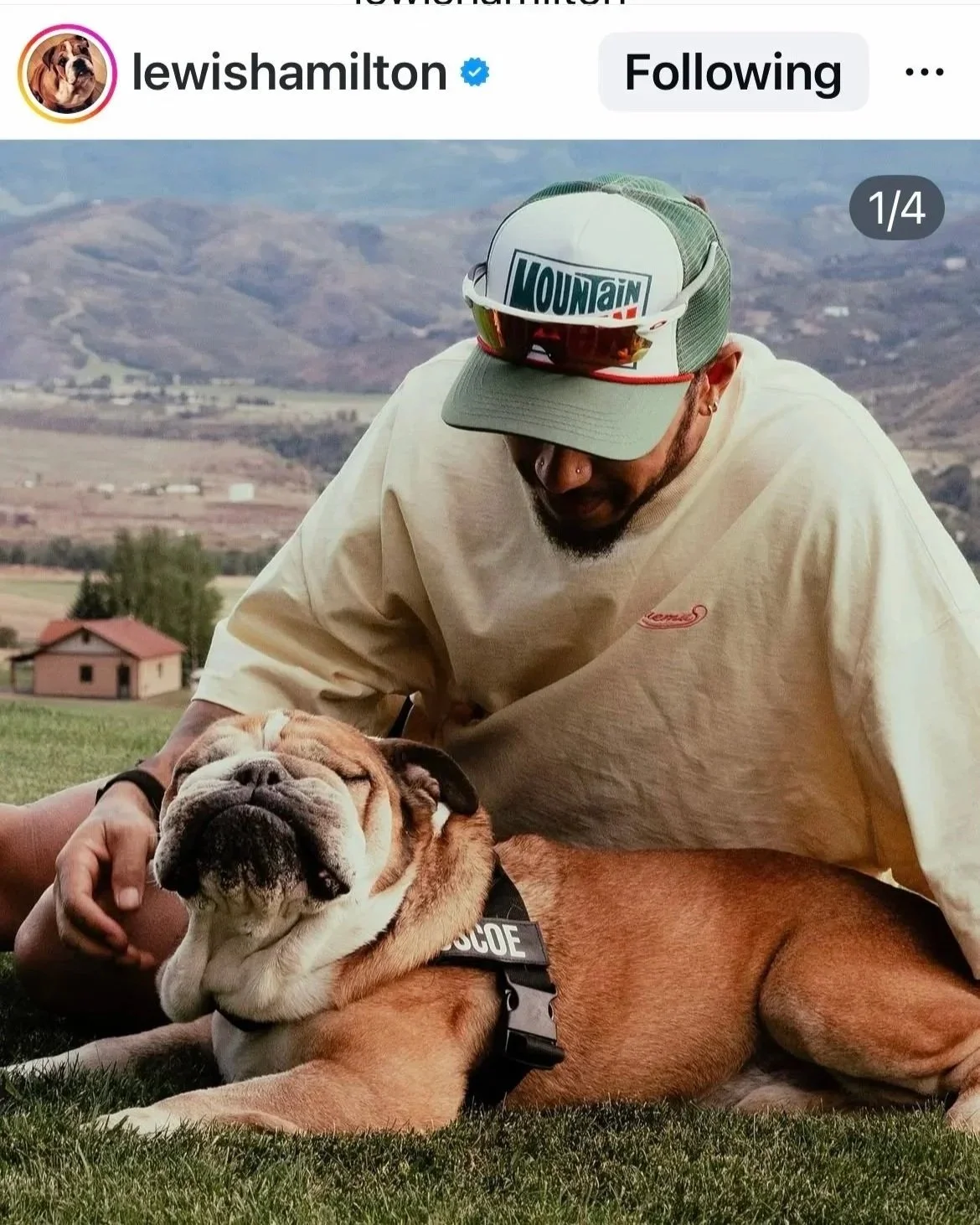The Disenfranchised Grief of Pet Loss: Why It Hurts So Much
A few years ago, a client reached out to ask if they could join one of my grief courses. They hadn’t lost a person, but a dog.
I hesitated for a moment. Others already signed up had lost a child (some to suicide) or their lifelong partner. This person, though, explained they didn’t have children and that their dog was their closest companion.
I said yes. Because love is love. The love we have for a pet can be every bit as real and deep as the love we have for humans - and so, when they die, the grief can be just as real too. We have an aging Jack Russell in our house and I know that grief will hit hard when he goes. It’s not the same as losing Abi - but no two losses are ever the same anyway.
Me and my much-loved Jack.
What Is “Disenfranchised Grief”?
Disenfranchised grief is the grief we feel that isn’t openly acknowledged, validated, or supported by others - it’s disenfranchised by society. It’s what happens when the world tells us our loss doesn’t “count.”
If you’ve lost a much-loved pet, you might have experienced it when people say things like: “It’s just a dog. You can get another one.”
Those words can sting, and they minimise something profound - the enormity of the love we feel, and the intensity of these bonds that shape our everyday lives, our routines, and provide a sense of safety and belonging.
Why Does Pet Loss Hurts So Much?
Because our pets are woven into the fabric of our lives. They greet us every morning, nudge us out for walks, and curl up on the couch, look at us lovingly, and comfort us - with words, and without question. Some even seem to be able to tell when we’re hurting.
I bet many of you can still think back to the love you had for a childhood pet years after they’ve gone. How many of us would struggle to hit 10,000 steps a day without the steady insistence of our dog’s longing looks? For many, pets are family, for some their only companion and comfort.
Research backs this up: Studies show pet ownership is linked to lower loneliness and better emotional wellbeing, particularly for people living alone or coping with grief. They buffer against trauma and depression.
So when we lose them, it makes perfect sense that their absence hurts us. Deeply.
Lewis Hamilton mourning the death of his dog Roscoe publicly.
Real Stories, Real Love
Recently our friends’ were devastated when their gorgeous kitten ran behind a car, and last week I heard about two much-loved dogs who died. One was Lewis Hamilton’s bulldog, Roscoe. The other was Bluey, my long-time colleagues’ dog. It’s good to see these people ‘owning’ their grief - sharing it openly. Lewis Hamilton voiced his feelings in the media, and Bluey was paid tribute to in a LinkedIn post. I met Bluey soon after Abi died, and I’ll never forget his big heart and endless enthusiasm for, well, everything. When I went to stay, still raw with grief, Bluey would pad quietly into my space and rest his head on my knee, looking at me knowingly. Sometimes dogs just know.
Honouring This Kind of Loss
Pets are so good at offering that kind of love: wordless, unconditional, grounding. A constant reassuring presence we can count on. They never talk back, they rarely say no, they don’t ignore you in favour of their phones, they’re fluffy and waggy, and so fantastically constant in their companionship. It’s no wonder they’re easier to love than our actual children (and partners!) at times!
So if you’ve lost a pet recently, please know this: your grief is valid. You don’t have to minimise it, apologise, or explain it away. And if someone you know is grieving their pet, resist the temptation to “replace” their loss with logic. Ask what they miss most, and listen.
In our good times, our every days, and our hardest days, our pets walk alongside us, loving us through it all. The least we can do is honour them when they go. Because love is love. It doesn’t matter who it’s for - it hurts like hell when they’re no longer in our world.
If This Resonated with You
If you found comfort or recognition in this post, I’m sure you’ll love my new book - How Will I Ever Get Through This? - which helps people going through this kind of ‘disenfranchised grief’ understand what’s going on and how they can manage it better, without feeling like there’s something wrong with them or they’re going mad. You can find more about the book and read an extract from it here.
Alternatively, sign up for my newsletter below, so I can continue to support you on your journey through loss, resilience, and rebuilding.


